Table of Contents
ToggleDefinition of female infertility:

The incapacity of a woman to conceive or carry a pregnancy to term is known as female infertility. The age-old medical system known as Ayurveda provides holistic methods of treating female infertility by emphasizing the restoration of bodily, mental, and spiritual equilibrium.
Reasons of female infertility:
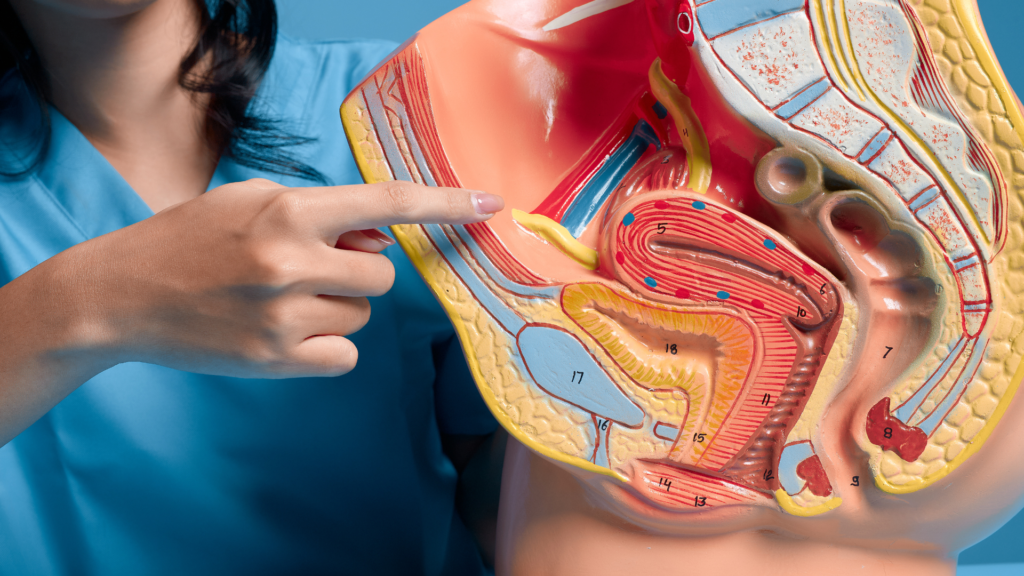
- Ovulation disorders: Ovulation that is absent or irregular, frequently brought on by hormonal abnormalities.
- Tubal factors: Damage or blockage of the fallopian tubes, which obstructs sperm and egg transit.
- Uterine factors: anomalies in the uterus that obstruct implantation, like fibroids or polyps and uterine congenital deformity.
- Endometriosis: This condition can impact fertility and is characterized by endometrial tissue found outside the uterus.
- Age-related factors: As women become older, their ovarian reserve and egg quality decline.
- Polycystic ovarian syndrome (PCOS): An endocrine condition marked by enlarged ovaries and irregular periods.
- Pelvic inflammatory disease (PID): Reproductive organ infections that may result in infertility and scarring.
- Autoimmune disorders: Conditions in which reproductive organs are unintentionally targeted by the immune system.
- Lifestyle factors: These include stress, smoking, drinking alcohol, being obese, and engaging in excessive exercise.
- Cervical factors: polyp in the cervical canal, acute retroverted uterus, and pinhole meatus.
- According to Ayurveda, tridosha dushti (vitiation of the three ruling forces of the body) and agnimandya (vitiation of the digestive fire of the body) are the primary causes of any abnormal function in the body.
Signs of female infertility:

- Absent or irregular menstrual cycles.
- Pelvic pain or painful menstruation.
- Excessive vaginal secretions.
- Hormonal imbalances in PCOS, such as hirsutism, or excessive facial hair.
- Past miscarriages or infertility following a year of trying.
Diagnosis of female infertility:
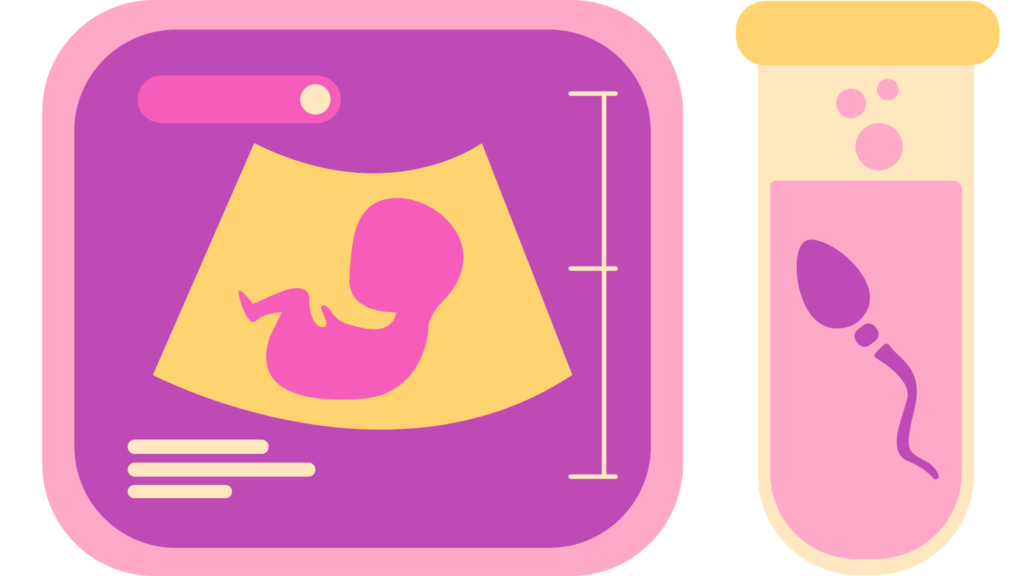
- Medical history and physical examination, covering sexual habits, past medical conditions, surgeries, and medication use.
- Ovulation tracking: Using techniques such as ultrasonography monitoring, ovulation predictor kits, and basal body temperature charting.
- Hormone testing: to measure menstrual cycle-related hormone levels.
- Imaging tests: Ultrasounds are used to assess the ovaries and uterus.
- Hysterosalpingography (HSG): A specific X-ray used to look for fallopian tube obstructions.
- Laparoscopy: A minimally invasive method for pelvic adhesions and endometriosis diagnosis and treatment.
Conventional Treatment Options:
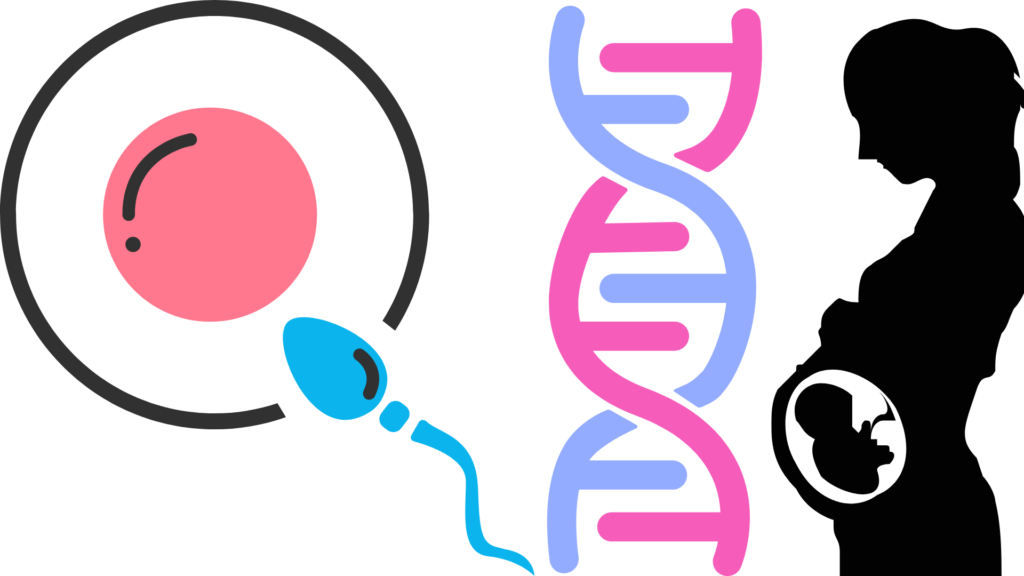
- Ovulation induction: The process of promoting ovulation with drugs or medicines.
- Direct implantation of sperm into the uterus during ovulation is known as intrauterine insemination or IUI.
- In vitro fertilization (IVF): the process of introducing embryos into the uterus after sperm and eggs are fertilized in a lab.
- Surgery: To treat structural defects or clear obstructions in the reproductive system.
- Hormone therapy: Used to address imbalances in hormones.
Ayurvedic methods for treating infertility:

Infertility itself does not stand alone. It is the result of some other disease.
Therefore, the goal of the treatment’s herbal component is to eradicate the underlying problem. Popular herbal remedies like Ashwagandha (Withania somnifera), Shatavari (Asparagus racemousus), and Amalaki (Emblica officinalis) are highly beneficial combinations that support the creation of a synergistic hormonal balance between the luteinizing hormone (LH) and the follicle-stimulating hormone (FSH).
It is not thought that any one herb can increase fertility on its own. To address an organic or functional issue that contributes to infertility, a combination of herbs is employed in the treatment of infertility.
Ayurvedic treatment principles for infertility:
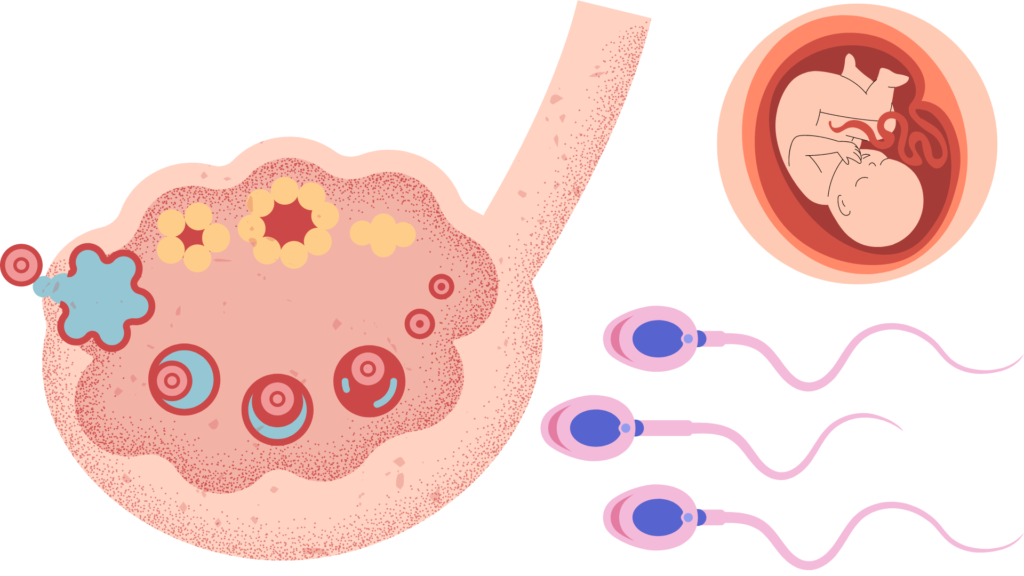
- Ama pachana and Agni deepana: Numerous ailments are caused by the imbalance in Agni, the strength of digestion, which results in the production of Ama, or poisons released when undigested food forms in the stomach. As a result, treating Ama must always involve treating Agni as well, which may involve using digestive and carminative Ayurvedic formulations and scheduling meals appropriately. Treatments based on Ayurveda Panchakarma aid in the removal of Ama, which balances Agni.
- Vata-anulomana: Vata is the primary dosha that contributes to infertility. Thus, Vatanulomana, or balancing out Vata’s functions, is crucial while treating infertility. Vata-anulomana can be aided by Ayurvedic formulations, regular exercise, and a rigorous diet plan.
- Shodhana: Before the shodhana, appropriate snehan-swedan are performed. Next, depending on the patient’s state, different therapy techniques like Vamana (emesis), Virechana (purgation), Basti (medicated enema), and Uttara-basti special enema (given via the urethral or vaginal pathways) are carried out. The patient must adhere to peyadi krama, which is a stringent eating plan that comes following Shodhana. The removal of toxins from the body is aided by this detoxification treatment. These treatments aid in the correction of uterine, tubular, and ovarian issues that lead to infertility.
- Ayurvedic treatments aid in the body’s detoxification and release of tension: They boost immunity, energize the intellect, and provide nourishment to the body. They help to calm Vata, nourish all of the body’s dhatus, and lessen stress.
Ayurvedic herbs used for treating infertility:

An optimal blend of herbs can help with menstrual cycle regulation, overall health and wellness enhancement, sperm revitalization (a man’s sperm count, morphology, and motility are improved), stress reduction, improved sleep, anxiety management, increased energy, endocrine system balancing, and improved blood flow in the pelvic cavity, all of which contribute to increased fertility.
- Shatavari (Asparagus racemosus): Balances hormones and supports the health of female reproduction.
- Ashoka (Saraca indica): Promotes better uterine health and helps control menstrual periods.
- Guduchi (Tinospora cordifolia): Promotes general reproductive health and immunity.
- Amla (Emblica officinalis): Antioxidant- and vitamin-rich, enhances fertility.
- Triphala: A concoction of three fruits (Bibhitaki, Haritaki, and Amalaki) that promotes hormonal balance and detoxification.
Ayurvedic medicines for infertility:
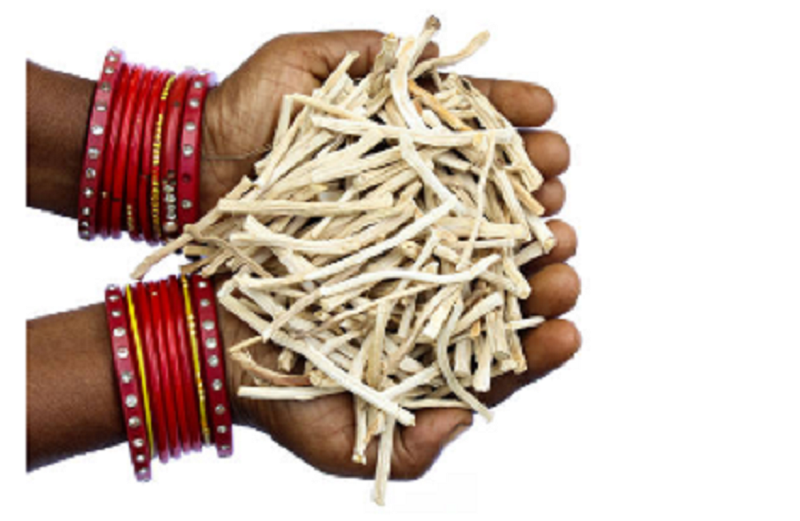
- Pushyanuga Churna: Used to treat infertility and other gynaecological conditions.
- Phala Ghrita: A medicinal ghee blend good for the reproductive system of women.
- Chandra-Prabha Vati: Assists in menstrual cycle management.
Dietary advice with modifications to lifestyle for curing infertility:

- There is a need to eat a full, well-balanced diet rich in whole grains, fresh produce, lean meats, and healthy fats.
- To support reproductive health, specific foods like ghee, milk, sesame seeds, almonds, dates, and honey may be advised.
- Avoid processed foods, refined sweets, alcohol, excessive coffee, and greasy or spicy foods.
- Engage in stress-relieving activities like yogasan, meditation, and deep breathing.
- Retain a healthy weight by eating a balanced diet and engaging in regular exercise.
- Keep yourself safe from poisons and pollutants in the environment.
- Get enough rest and sleep to maintain hormonal balance and general health.
- Infertility couple counselling: It’s needed to rule out male infertility issues as well. This gives you the opportunity to talk through your thoughts and feelings with a professional medical counsellor who can help you process what you’re going through as male fertility problems include poor quality sperm, low sperm count or blockages in the tubes of the reproductive system.
Panchakarma therapy for female infertility:

The reproductive systems may be detoxified and rejuvenated by using Panchakarma treatments such as enema, purgation, and the intrauterine administration of therapeutic oils (Uttar Basti).
It’s crucial to speak with a licensed Ayurvedic practitioner before beginning any Ayurvedic treatment plan for female infertility to acquire advice that is specifically catered to your needs and health issues. A complete reproductive care strategy should incorporate Ayurvedic medicines in addition to standard medical treatments.
Disclaimer: Before beginning any Ayurvedic treatment plan, it is imperative to speak with a licensed Ayurvedic practitioner. This is because personalized suggestions may differ depending on your constitution (dosha), underlying medical concerns, and general lifestyle. Furthermore, Ayurvedic remedies ought to be used in conjunction with traditional medical methods, particularly when infertility has been detected.

I appreciate your emphasis on raising awareness and advocating for increased access to fertility care. Everyone deserves the chance to build their family, regardless of financial barriers or societal stigma.
very informative.👍
Nice information
Very simple and easy to understand language of information 👍🏼
It is need of the society to understand female infertility and treat accordingly.
Ayurveda has the holistic solution to it .